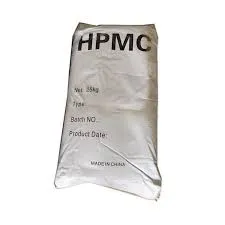
Dec . 04, 2024 15:55 Back to list
Applications and Properties of Hydroxyethyl Cellulose in Various Industries
Understanding Hydroxyethyl Cellulose Its Importance and Applications
Hydroxyethyl cellulose (HEC) is a non-ionic, water-soluble polymer derived from cellulose, a natural biopolymer found in plant cell walls. The chemical structure of hydroxyethyl cellulose includes hydroxyethyl groups introduced through a chemical modification process, which enhances its solubility in water and imparts unique properties that are highly valued in various applications. The CAS number for hydroxyethyl cellulose is 9004-62-0, and it is widely utilized across multiple industries, including pharmaceuticals, cosmetics, food, and construction.
Properties of Hydroxyethyl Cellulose
Hydroxyethyl cellulose exhibits several noteworthy properties that make it an attractive choice for manufacturers and formulators. Its primary characteristics include
1. Solubility HEC is soluble in hot and cold water, producing a clear and viscous solution. This property is crucial in industries where consistency and stability of the product are essential.
2. Thickening Agent Due to its ability to increase viscosity at low concentrations, hydroxyethyl cellulose serves as an effective thickening agent. It is commonly used in gels, creams, and emulsions.
3. Film-Forming HEC can form a flexible, hydrophilic film upon drying, which makes it useful in coatings and protective barriers in various applications.
5. Non-toxicity As a natural derivative of cellulose, HEC is non-toxic and biodegradable, aligning with the increasing demand for environmentally friendly products.
hydroxyethyl cellulose cas number

Applications of Hydroxyethyl Cellulose
1. Pharmaceuticals In the pharmaceutical industry, hydroxyethyl cellulose is often utilized as a binder, thickener, or stabilizer in various formulations, including tablets, creams, and gels. Its mucoadhesive properties enhance the bioavailability of drug formulations, making it essential in developing effective therapeutic products.
2. Cosmetics and Personal Care HEC is widely used in cosmetic formulations due to its thickening and emulsifying properties. It is found in lotions, shampoos, conditioners, and other personal care products. Its ability to provide a smooth texture and improve the spreadability of formulations contributes significantly to consumer satisfaction.
3. Food Industry In the food sector, hydroxyethyl cellulose acts as a stabilizer and thickener in sauces, dressings, and baked goods. It improves the texture and mouthfeel of food products, enhancing overall quality while ensuring they remain stable over time.
4. Construction Hydroxyethyl cellulose is used in the construction industry as an additive in cement and mortar. It enhances water retention and workability, making it easier to apply and improving the durability of construction materials.
5. Agriculture In agriculture, HEC has found applications in controlled-release fertilizers and soil conditioning agents. Its hydrophilic properties contribute to improved water retention in soils, promoting better plant growth.
Conclusion
In summary, hydroxyethyl cellulose (CAS number 9004-62-0) is a versatile, water-soluble polymer with broad applications across various industries due to its unique properties. From pharmaceuticals to cosmetics, food to construction, HEC plays a crucial role in enhancing product performance and consumer experience. As industries continue to seek sustainable and effective alternatives, the importance of hydroxyethyl cellulose is likely to grow, solidifying its status as an essential ingredient in modern formulations. As we move towards more eco-friendly solutions, the role of natural derivatives like HEC will be paramount in shaping the future of product development across multiple sectors.
-
Versatile Hpmc Uses in Different Industries
NewsJun.19,2025
-
Redispersible Powder's Role in Enhancing Durability of Construction Products
NewsJun.19,2025
-
Hydroxyethyl Cellulose Applications Driving Green Industrial Processes
NewsJun.19,2025
-
Exploring Different Redispersible Polymer Powder
NewsJun.19,2025
-
Choosing the Right Mortar Bonding Agent
NewsJun.19,2025
-
Applications and Significance of China Hpmc in Modern Industries
NewsJun.19,2025







